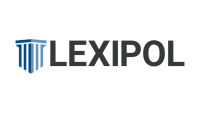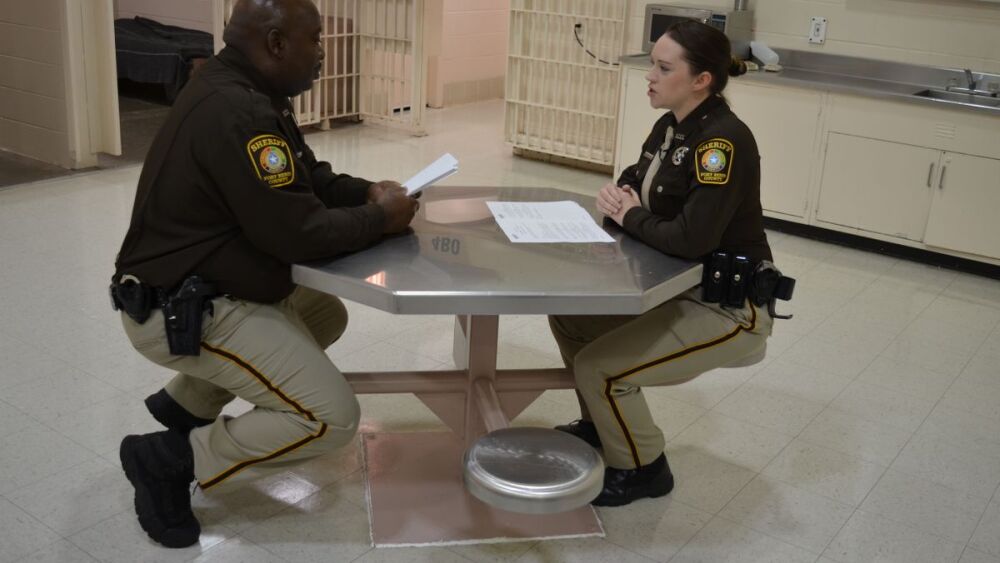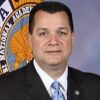“It is never too late to be who you might have been.” – George Eliot (Mary Ann Evans)
Ask any public safety leader today what their top challenges are and they’re almost certain to say, “recruitment and retention.” The sheer number of agencies offering signing and lateral transfer bonuses is an obvious sign.
And while money certainly does talk for some employees, it’s not as powerful as we often think. One study found nearly 70% of respondents indicated dissatisfaction with growth opportunities as a primary factor for switching jobs. [1] As turnover and a shortage of applicants continues to affect employers nationwide, it’s imperative public safety agencies conduct a comprehensive review of career development processes and programs to ensure they have a positive impact on job satisfaction, professional development and productivity.
What Is the Purpose of Career Development?
Regardless of your position within the organization, getting the most out of your career depends on personal betterment, enrichment and fulfillment. Career development in public safety agencies can mean anything from attending necessary or mandatory training (maintaining minimum standards for employment) to a comprehensive way of attaining both personal and professional goals (advancing through a lifelong and satisfying career). From a technical standpoint, “the purpose of career development is to match the employee’s aspirations with the [company’s] challenges…” with the overall goal centered on organizational effectiveness. [2]
In leadership, one of our primary objectives is to mentor subordinates so they can replace us. Continuity of operations is imperative in public safety and effective career development allows an organization to better prepare employees for future roles. Research suggests that employees experience greater job satisfaction and “give it their best when they sense well-organized developmental career plans that support their development and advancement to reach high levels,” while enhancing their ability to learn. [2]
Benefits to the organization include a reduction in turnover and better succession planning, but employee benefits are even greater. Effective career development “plays a major role in employee effectiveness and creativity over the long term.” It also enhances the employee’s knowledge, skills and abilities (KSAs), which improves job performance, adds value and creates a sense of fulfillment – all key factors that contribute to overall job satisfaction. [2]
Put simply then, the purpose of career development is to align the employee’s long-term goals with those of the agency – where possible – so the employee/employer relationship is long-lasting and productive.
Where Do Agencies Go Wrong with Career Development?
Research conducted by Hedge and Rineer found that “historic approaches to career success were driven by similar beliefs that success was rationally and predictably determined.” [2] Their research also identified what many public safety organizations are routinely guilty of: defining career progression in a hierarchical, vertical progression. These rigid processes routinely feature “complex duties and responsibilities within a general occupational area, often with some accompanying ‘benchmarked timing.’” [1] In other words, the process is anything but personal!
But rigid, defined processes no longer fit the needs of today’s employees. Research indicates that 62% of Generation X and 84% of Baby Boomers expect to remain with their current employers. [2] Systematic internal career development processes may have worked well for these older workers, but almost 60% of millennial workers are unlikely to remain with their current employer. [2] With many Generation X and Baby Boomer employees retiring, it’s important for public safety agencies to review career development processes since they play a major role in the satisfaction of the younger employees who need to feel valued and challenged in their roles. It’s important to remember that for today’s employees, career development may not mean simply promoting to the next rank.
It’s also important that career development doesn’t just become a cliché. We’ve all heard leaders say things like, “We have a comprehensive career development program” or “Our personnel are given opportunities to invest in their own success through career development.” But if that means a few standardized training opportunities are provided, they’re missing the boat. Like leadership, effective career development cannot be achieved in a one-size-fits-all manner.
Today’s employees have different expectations than their predecessors. Therefore, it’s incumbent on organizational leadership to know their people and effectively manage career development in such a way that it’s meaningful on a personal level.
How Can We Improve Career Development in Public Safety Agencies?
De Gulan and Aguiling’s research notes how career development should be “intentional, intelligent and incremental.” [3] Their research also found that effective career planning consists of a combination of self-insight, organizational goal setting, action planning and plan implementation. [3]
In other words, your agency should use a systematic process of identifying what things benefit both the agency and each employee. Helping employees set attainable goals in line with organizational goals assists them with professional development and career advancement. Hedge and Rineer suggest organizations create “a more holistic, data-driven perspective on career progression” which “increases the likelihood that sound, equitable, and beneficial decisions will be made by both employee and employer at all levels of the career pathways framework.” [1]
Consider a career development program that: [1]
- Requires clear criteria for advancement and clearly communicates that process to your employees: We’ve all seen the “good ole boy” promotional process. Today’s employees are more informed and educated than ever before. They won’t hesitate to move on if they think your promotional process isn’t fair.
- Offers comprehensive training and personal development opportunities: It doesn’t matter whether you do this in-house or whether your agency sends employees to outside training. Do everything you can to invest in your personnel and enhance their KSAs.
- Emphasize a collaborative employee-employer approach: This takes effort and requires effective use of your organization’s formal evaluation process, in addition to regular interactions between supervisors and subordinates. Maree notes the importance of expanding career counseling in such a way that employees “acquire stable work-life identities to help them transform career-life challenges into opportunities.” [4]
- Undergoes continual evaluation: As we’ve previously discussed, many career development programs are inadequate and fail to address today’s employees. After you’ve reviewed your current program and made appropriate refinements, don’t stop there. Tomorrow’s employees will come to work with another unique set of challenges. Conduct adequate research and be ahead of the change that’s necessary to retain employees.
- Takes into account employee non-work demands: This is especially true in public safety since the job never really goes away. Your employees have lives outside of the organization and we already know the challenges created by trying to maintain a healthy work-life balance in these professions. This means looking closely at shift scheduling, employee wellness and other factors that have an impact on overall job satisfaction.
More Than a Slogan
Career development should be more than a tagline within your agency. It should be comprehensive and include communication, training and research to determine what your agency needs and how best to leverage the strengths of your employees to get it. Milosheva et al note how making informed career decisions go well beyond simply having knowledge of available career options. It requires information and education, all functions that depend on effective career counseling that begins the moment your employees enter the door.[5]
If you’re in a leadership position, don’t lose sight of the importance of career development affords your organization in remaining competitive in a tough and ever-changing job market.
And if you’re an employee looking to progress, stay the course and know that every reward takes time and effort. The organization owes you the ability to realize your potential and grow within the agency. In return, you owe the organization commitment, effort and loyalty. As an entrepreneur and motivational speaker, Jim Rohn once said, “Successful people do what unsuccessful people are not willing to do. Don’t wish it were easier; wish you were better.”
References
1. Hedge JW, Rineer JR. (2017) Improving Career Development Opportunities Through Rigorous Career Pathways Research. RTI Press Publication No. OP-0037-1703.
2. Fahed-Sreih J (Ed). (2020) Career Development and Job Satisfaction. IntechOpen.
3. De Gulan XM, Aguiling HM. (2021) Developing a strategic career development model on organizational climate, career adaptability and career intentions. International Journal of Research in Business and Social Science. 10(2):153–156.
4. Maree JG. (2018) Perspective: promoting career development in the early years of people’s lives through self- and career construction counseling to promote their career resilience and career adaptability. Early Child Development and Care. 188(4):421–424.
5. Milosheva M, Robertson P, Cruickshank P et al. (2021). The role of information in career development. Journal of the National Institute of Career Education and Counselling. 47(1):12–20.














